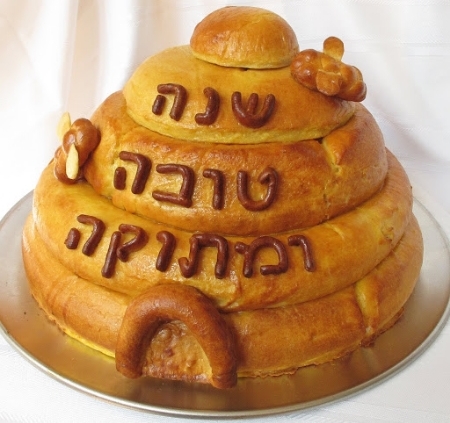Jewish Mindfulness
I have a friend who makes the most delicious challah. Every week she creates beautiful sweet challah that is the edible definition of “hiddur mitzvah’, enhancing a mitzvah. Every week she made challah for her family and our Torah study group.
One week the challah tasted just a bit different, it was almost the same but not quite the same. She told me that she hadn’t done anything differently and she wasn’t sure what I was noticing. However after giving it more thought, she remembered that this time she had not been as focused on making challah as a act of love as she usually is. So now I understood why it tasted different. It was missing a spiritual ingredient, kavanah, intentionality and mindfulness.
I was reminded of the challah as I thought about this week’s Torah portion, Nitzanim. In it Moses tells all the Israelites that they will be blessed in the land if they love Y-H-V-H, walk in god’s ways, and keep the mitzvot. At first I interpreted this as an implied question and answer, “What does it mean to love Y-H-V-H?” – To walk in god’s ways and perform the commandments. And then my friend’s delicious challah came to mind and I saw a different way to understand this. In all you do, love Y-H-V-H, do it with intention, do it mindfully, do it with kavanah. When you walk in god’s way, do it with intention and love. When you perform the commandments do them mindfully, with love.
The time from now through Yom Kippur is a gift to look at what we are doing and how we are doing it. If we open ourselves, the time in prayer can give us the inspiration to know where to begin. The high holiday liturgy tells us “Teshuvah, Tefillah, and Tsedakah will lessen the decree”. Our self-reflection and self-judgement should guide us.
Is there a mitzvah you’ve been thinking about taking on but have not yet done so? Perhaps it is kashrut, or observing Shabbat, or studying Jewish text, or not participating in “Lashon haRa” (gossiping). Often we get blocked by the feeling it is too much. In this week’s parsha, Moses tells the Children of Israel that it is not too much for them – it is neither in the heavens nor across the sea, but rather it is in their mouths and heart. Begin with a piece of it and when you do that piece, do it with intention and love.
One might begin giving Tsedakah that connects a theme to each holiday throughout the year giving both the holiday and the mitzvah of Tsedakah that much more kavanah. Supporting organizations addressing homelessness could be the focus of Sukkot tzedakah, Shemini Atzeret could focus on water, Chanukah could be about education, Tu b’Shevat could be on the environment. As partners with God in creation, our Tsedakah can help make the world God created whole again, truly an act of love.
The new year is a time to renew and begin again, or even begin. Shanah tovah
JoHanna Potts






 Evan J. Krame was ordained as a rabbi by the
Evan J. Krame was ordained as a rabbi by the